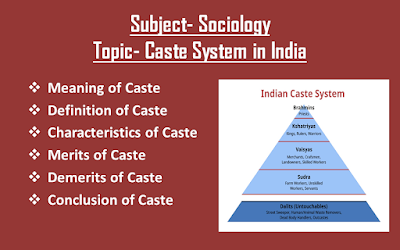Involuntary Groups- Meaning, Definition, Characteristics and Importance
# Involuntary Groups
An involuntary group is a type of social group where membership is not chosen by the individual, but rather is determined by circumstances beyond their control.
In other words, individuals are assigned or placed into the group without their consent or choice.
For example, family is an involuntary group because an individual has no control over his birth- to be born or not born in a specific family.
# Definition of Involuntary Groups
1. According to Max Weber:- "A group that individuals are born into or forced to join, without choice or consent, often based on ascribed characteristics."
2. According to George Herbert Mead:- "A group that individuals are involuntarily assigned to, often based on social categories or characteristics beyond their control."
3. According to Herbert Blumer:- "A group that is formed and maintained through coercion, constraint, or circumstance, rather than voluntary participation."
# Characteristics of Involuntary Groups
1. Lack of choice:- Members do not choose to join the group.
2. Assigned membership:- Membership is assigned or determined by circumstances beyond individual control.
3. No voluntary participation:- Members do not participate voluntarily.
4. Inherent characteristics:- Membership is often determined by inherent characteristics, such as age, gender, ethnicity, or disability.
5. Social categorization:- Involuntary groups are often formed based on social categorization, such as social class or race.
6. Limited control:- Members may have limited control over their membership or participation.
7. Potential stigma:- Involuntary groups can be stigmatized or carry negative social connotations.
8. Impact on identity:- Involuntary group membership can significantly impact an individual's identity and self-concept.
9. Socialization:- Involuntary groups can socialize individuals into certain roles, behaviors, or beliefs.
10. Emotional impact:- Involuntary group membership can have a significant emotional impact, such as feelings of shame, guilt, or resentment.
# Importance of Involuntary Groups
1. Involuntary groups shape individual identity and self-perception through shared characteristics and experiences.
2. Involuntary groups transmit cultural values, beliefs, and practices through socialization.
3. Involuntary
groups provide social support, resources, and connections that impact
well-being.
4. Involuntary groups influence access to education, employment, healthcare, and other vital resources.
5. Involuntary groups can experience social inequality, discrimination, and marginalization.
6. Involuntary groups preserve cultural heritage, traditions, and history.
7. Involuntary groups can mobilize for political representation, advocacy, and social change.
8. Involuntary groups drive social movements, activism, and reform efforts.
9. Involuntary groups foster resilience, collective empowerment, and personal growth.
10. Involuntary groups reveal underlying social dynamics, power relationships, and structural inequalities.
Watch video on YouTube





